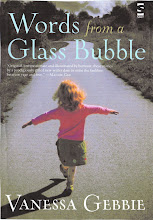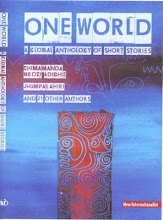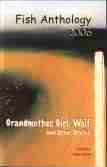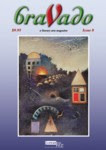Words from a Glass Bubble has been reviewed by Adele Geras today on her husband (Norman Geras)'s blog, Normblog.
(I love Normblog. There is always something to provoke, to challenge, to make me think...)
Adele Geras reviews two Salt Collections: Balancing on the Edge of the World, by Elizabeth Baines, and Glass Bubble.
She writes a very good introduction in which she champions the short story.Here is her article in its entirety:
Two short story collections (by Adèle Geras)
Salt is an independent publisher based in Cambridge and it specializes in short stories. I've read two collections by Salt authors recently: Elizabeth Baines's Balancing on the Edge of the World when it came out a couple of months ago, and - the other day - Vanessa Gebbie's Words from a Glass Bubble, to be launched next week.
Some people simply don't like reading short stories and I find this so inexplicable that every so often I'll try my powers of persuasion to win the form a few more readers. Publishers (though not Salt, obviously) think that collections are not a paying proposition and efforts to bind them up individually as tiny little booklets and sell them at railway stations and the like don't seem to have flourished. They crop up less and less frequently in magazines. The broadsheets will carry a story by a superstar writer at Christmas, and occasionally at Halloween, because ghost stories, at least, are perennial favourites. Val McDermid tried her hardest a couple of years ago to get short stories noticed with a superb website and perhaps the internet is part of the future of this genre. But collections like these two show that the form is still alive and well in its printed version.
Those who don't like short stories are disappointed, perhaps, because they expect them to be small novels and they're not. It's like wishing a truly delicious canapé, or an exquisite strawberry tart, were a three-course meal. That isn't going to happen. With a few exceptions, short stories are short - over in a few pages for the most part - and therefore you'd think ideal for journeys, waiting rooms, the time before you fall asleep and any small time slot when getting stuck into a novel means you won't get further than the next few pages and have to leave it hanging till a later time.
Stories, when they work (and in the hands of these two writers they do work), offer us a chance to look into someone else's life. They can throw a stone into our mind that keeps rippling out to the edges of our thoughts all day long. That, I think, is what the blurbese 'haunting' means: you are literally pursued by the story you've just read, as if by a particularly vivid dream. They can terrify you (M.R. James, Franz Kafka), make you laugh (Damon Runyon), and even bring to life, however briefly, a whole distinct world (Katherine Mansfield, Anton Chekhov). They can be extended jokes, or delicious bits of scandal, or an overheard conversation. There are stories to suit every taste.
Elizabeth Baines's speciality is unpacking relationships. She catches perfectly the embarrassment, rivalry, squabbling, envy and love that exist between parents and children and between siblings. 'The Way to Behave' has a wronged wife going to speak to her husband's mistress. Baines is wincingly funny about the creative process and 'The Shooting Script' ought to be required reading for anyone who fancies themselves writing for television. She's both lyrical and clear-sighted when she looks at the world through a child's eyes. Try the stories 'Power' and 'Daniel Smith disappears off the face of the earth'. She moves between the city and the countryside and her internal monologues sound genuine, which isn't a surprise as Baines is a prize-winning playwright. Many of these tales would make good short dramas and perhaps that's one way of approaching them. The difference between drama and stories, though, is this: you have to provide the setting, costume and props in words and Baines does this with enormous aplomb.
The cover image on Vanessa Gebbie's book (which shows the back view of a beautiful red-haired girl going along a road and which reminds me of the Clark's shoe advertisements from the 50s) is an ironic comment on the contents of the book. The stories here are often heart-breaking. The death of children is a recurring theme and tales like 'I can squash the king, Tommo' (with its deliberate echoes of 'Under Milk Wood') are hard to read with dry eyes. Gebbie is never sentimental and the grief felt by her protagonists is brilliantly described. The ordinariness of pain: the way you settle into it, the way you face what's dished out to you, the way you cope, are examined in language that's plain and even brutal when it needs to be, and tender and poetic when that's appropriate. Some of the stories are set in Wales; the seaside is the background for some others. There's a story about an Inuit child which is desperately sad, but still uplifting. Harry in 'Harry's Catch' - which dwells in some detail on the technicalities of fishing - faces the truth about his marriage for the first time. A lowly employee at a hotel works out who wears the shoes he polishes, and in my favourite story, 'Dodie's Gift', you get an entire thriller plot played out in ten pages. It's terrific stuff: wide-ranging, interesting and, like the Baines, very well-written.
I do urge anyone who loves short stories to read these two collections and help me spread the word. (Adèle Geras)
Subscribe to:
Post Comments (Atom)




.JPG)























2 comments:
Great review, Vanessa, congratulations! I especially liked the bit about your writing being unsentimental. I can't wait to read these stories of yours.
Thanks, Sarah.
Post a Comment